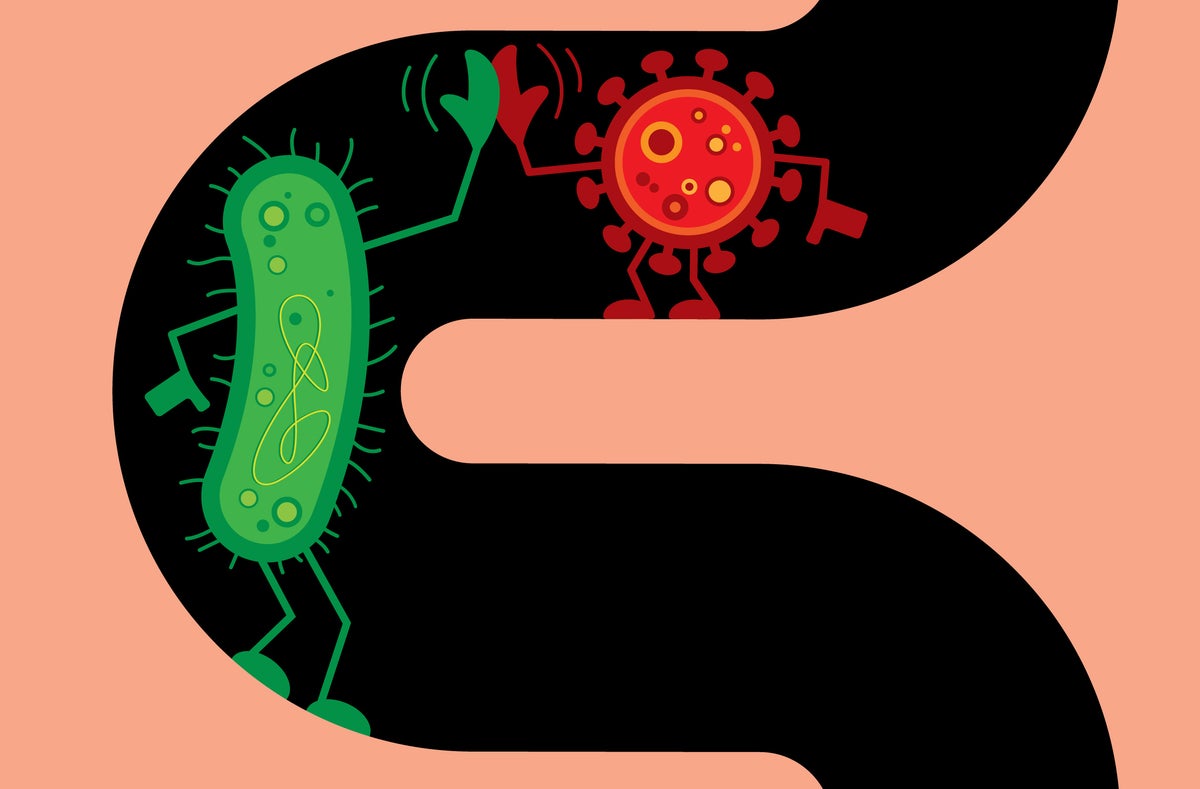Summary
Henry A. Nasrallah, MD
Professor of Psychiatry, Neurology, and Neuroscience
The University of Cincinnati College of Medicine
Cincinnati, OH
In this episode, Dr. Henry Nasrallah introduces the human gut microbiota and its profound role in brain health. He explains the structure and genetic co…
Source: Psychiatrist.com

AI News Q&A (Free Content)
Q1: What is the gut microbiota and how does it impact human health?
A1: The gut microbiota comprises microorganisms, including bacteria, archaea, fungi, and viruses, that reside in the digestive tracts of animals. It plays a critical role in various bodily functions, such as metabolizing dietary compounds, maintaining the intestinal epithelium, and modulating the immune system. It also influences brain health through the gut-brain axis, impacting behavior and potentially contributing to mental health disorders.
Q2: How does the gut-brain axis influence mental health?
A2: The gut-brain axis involves biochemical signaling between the gastrointestinal tract and the central nervous system. The gut microbiota can produce chemicals like cytokines and neurotransmitters that affect brain function and behavior, potentially influencing conditions such as anxiety, depression, and schizophrenia. Probiotics, which help maintain microbial balance, may play a role in the treatment and prevention of these disorders.
Q3: What recent research explores the role of gut microbiota in Alzheimer's disease?
A3: A study on transgenic mouse models of Alzheimer's disease reveals that gut microbiota dysbiosis is linked to cognitive deficits and neuropathology. Manipulating the gut microbiota composition in these models can enhance or delay disease progression, emphasizing the importance of gut health in cognitive disorders.
Q4: How do short-chain fatty acids (SCFAs) contribute to gut-brain communication?
A4: SCFAs, produced by gut microbiota, are key molecules in the gut-brain axis, impacting physiological and psychological processes. A novel communication framework models SCFA-driven signaling via the vagus nerve, offering insights into how these molecules influence neural outputs and potentially targeting neurological and psychiatric disorders.
Q5: What is the significance of housing conditions on gut microbiota in animal models?
A5: Research indicates that the sanitary status of animal facilities can significantly affect the gut microbiota composition in models of Alzheimer's disease. Mice housed in specific pathogen-free environments show different microbiota-related phenotypes compared to those in conventional facilities, impacting research outcomes on neurodegenerative diseases.
Q6: What potential do probiotics have in managing mental health disorders?
A6: Probiotics, which help restore the balance of gut microbiota, have shown potential in managing mental health disorders like anxiety and depression. By influencing the gut-brain axis, probiotics can modulate brain chemistry and endocrine systems, offering a non-invasive treatment option.
Q7: What challenges exist in researching the gut-brain axis?
A7: One major challenge is understanding the complex interactions within the gut-brain axis, involving multiple signaling pathways and molecular mechanisms. Additionally, variations in gut microbiota composition between individuals can complicate the development of generalized therapeutic approaches.
References:
- Gut microbiota
- Gut–brain axis
- The same but different: impact of animal facility sanitary status on a transgenic mouse model of Alzheimer's disease
- Modeling and Analysis of SCFA-Driven Vagus Nerve Signaling in the Gut-Brain Axis via Molecular Communication





